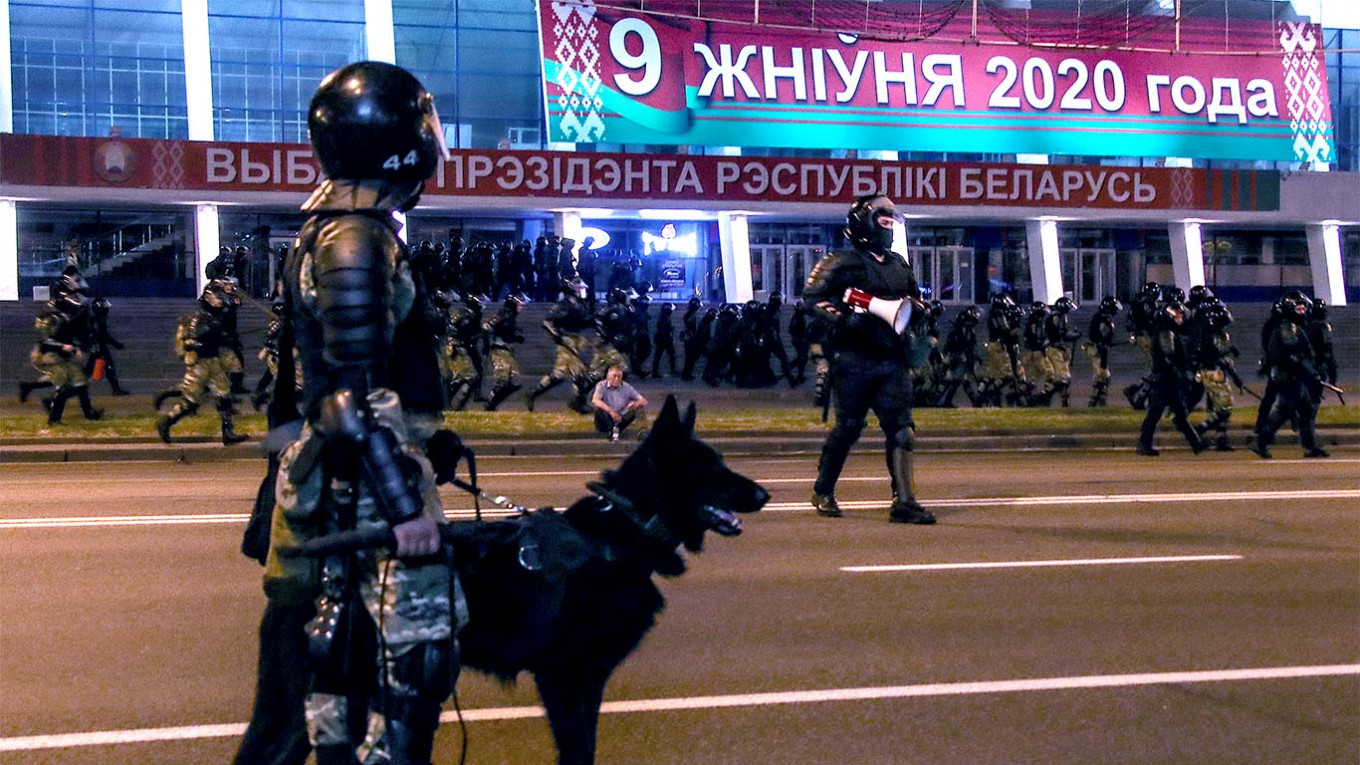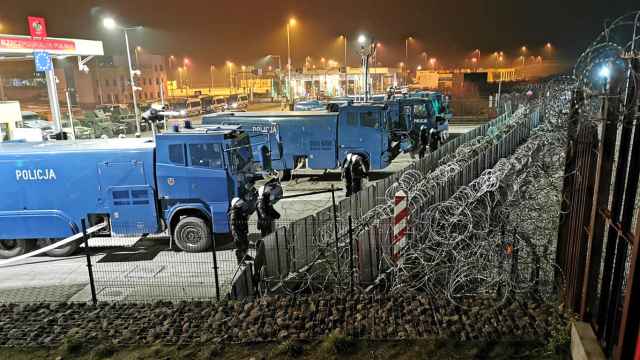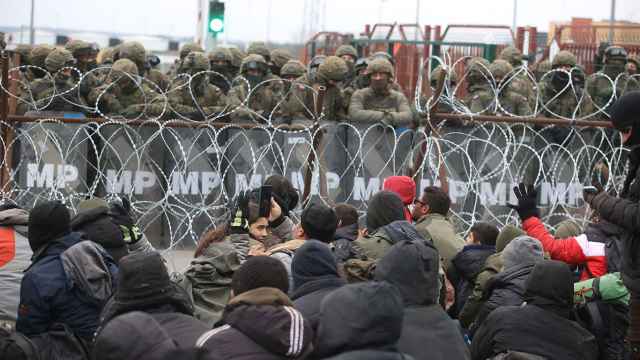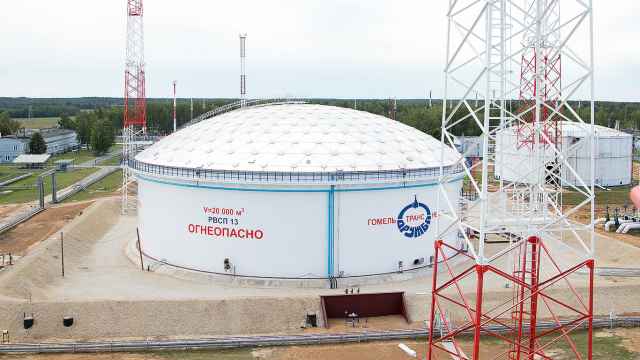Massive clashes broke out overnight in Belarus as thousands of protesters disputed presidential election results that showed long-serving leader Alexander Lukashenko winning with an overwhelming majority of votes.
Police broke up crowds of protesters with stun grenades and rubber bullets in Minsk and other cities Sunday evening. One protester was killed and dozens wounded in the chaos, a prominent rights group said Monday.
Lukashenko won a sixth term with 80.23% of the vote, the country’s central electoral commission said Monday following the clashes. Central electoral commission chief Lidia Yermoshina said in televised comments that the strongman's main challenger Svetlana Tikhanovskaya won 9.9%, citing a preliminary count.
Russia has closely followed its western neighbor’s tense election, with President Vladimir Putin stressing Moscow's "interest in retaining a stable domestic political situation in Belarus."
Here’s an overview of how Russian state-run media and officials have reacted to Sunday’s events:
— Komsomolskaya Pravda, pro-Kremlin tabloid:
“The queues outside polling stations stretched for kilometers. These weren’t people desperate to vote for the authorities. Queueing up here were people hoping for change in Belarus, for an end to meager salaries and [for] everything that’s unknown but new.”
“But, condescendingly, they were thrown a bone of 6% [of ballots cast for Tikhanovskaya, according to preliminary exit polls]. The people have been insulted [...] The president of Belarus, guarding his ‘80%’ with bayonets, will face difficulties. He has to find a way to explain what happened on Aug. 9.”
— NTV, pro-Kremlin broadcaster:
“Protests began in many cities after the polls closed. Opposition members said they disagree with the exit poll results. The rally in central Minsk ended in mass clashes. Law enforcement attempted to stop the riots peacefully by reinforcing units, blocking central areas and calling on everyone to disperse.”
“In the end, they used water cannons, stun grenades and pepper spray to disperse the crowd. There were injuries and detentions.”
— Rossia 24, state-run news network:
“Unauthorized actions started in the center of the Belarusian capital. There was quite a large gathering last night close to 10 p.m. […] The interior ministry spokeswoman said in the morning that law enforcement officers were forced to use special means against rioters.”
“Special equipment and stun grenades were used. There were detentions, stepped-up security measures in the city, the situation is under control [...] It’s morning now and the streets are almost empty.”
“[Tikhanovskaya] refused to acknowledge her defeat, saying results from three polling stations where ‘there were no falsifications’ showed that she was actually winning. This sentiment was clearly shared by many in the capital as angry protesters gathered in the center of Minsk and in other cities throughout the country.”
— Channel One, Russia’s largest broadcaster, made no mention of the overnight clashes in an early Monday segment announcing the Belarus vote results.
— Vladimir Zhirinovsky, lawmaker and far-right party leader:
“I express solidarity with all those who were subjected to repression in Belarus [...] They should be released.”
“The voters have already withdrawn their confidence in Lukashenko. The fate of [former Ukrainian President Viktor] Yanukovych awaits Alexander Grigoryevich.”
— Oleg Melnichenko, Russian senator and election observer:
“The demonstrations were clearly provocative and don’t say anything about the unreliability [of the vote].”
“There were no complications. The republic’s authorities worked very quickly and diligently. The Maidan [overthrow] attempt has failed.”
AFP contributed reporting.
A Message from The Moscow Times:
Dear readers,
We are facing unprecedented challenges. Russia's Prosecutor General's Office has designated The Moscow Times as an "undesirable" organization, criminalizing our work and putting our staff at risk of prosecution. This follows our earlier unjust labeling as a "foreign agent."
These actions are direct attempts to silence independent journalism in Russia. The authorities claim our work "discredits the decisions of the Russian leadership." We see things differently: we strive to provide accurate, unbiased reporting on Russia.
We, the journalists of The Moscow Times, refuse to be silenced. But to continue our work, we need your help.
Your support, no matter how small, makes a world of difference. If you can, please support us monthly starting from just $2. It's quick to set up, and every contribution makes a significant impact.
By supporting The Moscow Times, you're defending open, independent journalism in the face of repression. Thank you for standing with us.
Remind me later.






